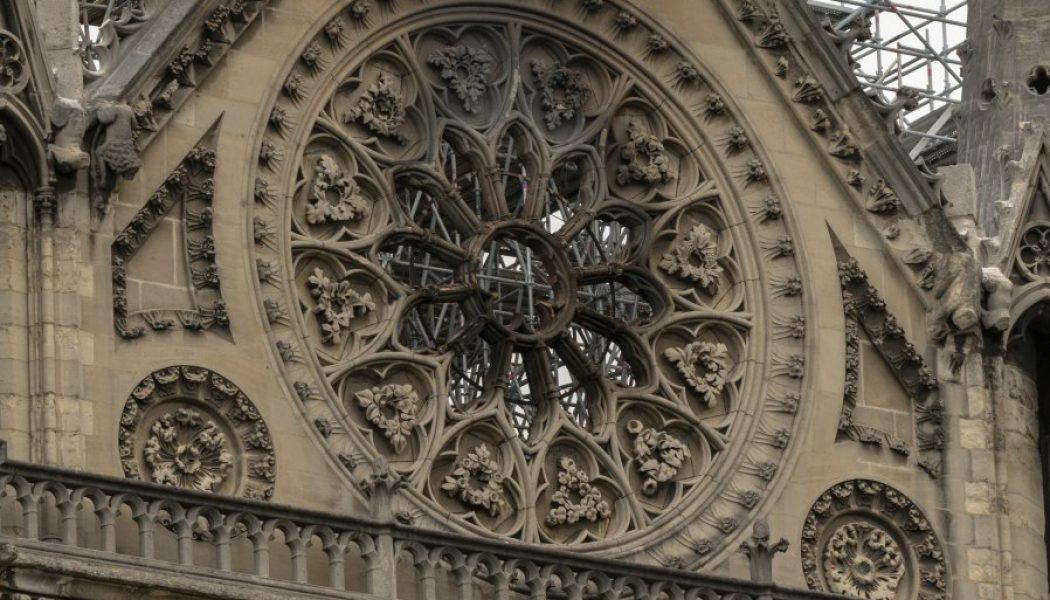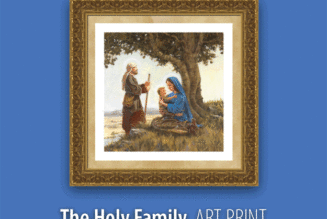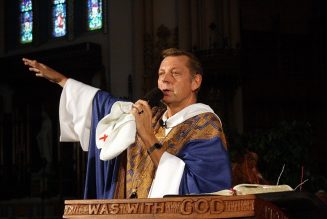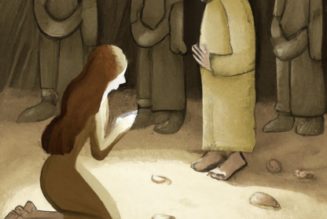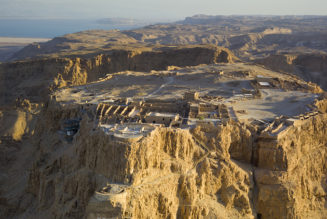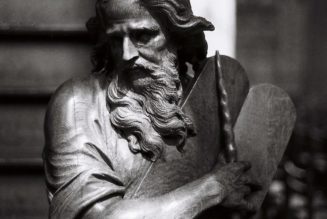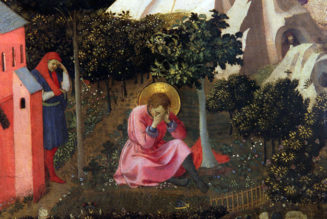
Lots of people say this, now that most of us can’t go to church: The Church is people. It’s not buildings. We can lose everything and still have each other. Jesus makes us brothers and sisters whether or not we have a place to meet.
We say it because not going to church hurts. Not being together, in person — that hurts. The Church is people, true. But the Church requires churches. The church of Notre Dame of Paris almost burned down a year ago today. The near loss of one of Christianity’s greatest buildings reminds us that our places matter.
Not a little bit. A lot. The virus has made many of us feel this as we never have before.
We Build Things
Why churches? Because people who agree deeply and love each other build things. Yes, where two or three gather in Jesus’s name, He’s with them. But when two or three gather in Jesus’s name for long, they build a church. Being the Church requires places to be the Church in.
Those interested in learning about Notre Dame and the fire will enjoy the fall 2019 issue of Sacred Architecture. The whole issue is now available online here. (I’m an editor of the magazine.)
The man and woman who commit themselves to each other in marriage soon want a home. Few want to bounce from hotel to hotel, even if they have the money for very nice hotels. They want to create a space that is theirs. They want to decorate it to tell the stories they want to tell, and celebrate the people they want to celebrate. The new couple wants a place to gather their family and friends.
That’s the reason Christians build churches. We’ve committed ourselves to a life with each other and we want to give that life a home. A place with an address. A place that’s ours. Where we can meet, talk, argue and encourage, help each other, console and confront, plan, serve. Most of all worship together. A place from which we can go out to share Jesus.
The Church needs churches. Most of us feel this now, because we don’t have them. We want to see our brothers and sisters in the places we’ve always seen them. In our churches.
The Great Churches
Does the Church need great churches? Like Notre Dame? Not all my friends think it does. But I do.
My friend Timothy Jones wrote last year of his joy at hearing that all of Notre Dame’s rose windows had survived the fire. He’s a painter, and sensitive to these things. He responded to people who said the cathedral was just a building. A big, pretty, famous one, but still just a building. Not a big loss.
“Don’t be too quick to let dry utilitarianism take hold,” he wrote. “It’s not just a building. Is a wedding dress just some fabric? Is the picture your child made for you just some paper and paint?”
Support The Stream: Serving the Body During This Crisis With Facts. Faith. And No Fear.
The great churches say something. They’re not just arrangements of stone, wood, iron, and glass. “The great cathedrals of the West could have been built only by men of great faith and great humility who were profoundly happy to know that they were sons of God,” Cardinal Robert Sarah said after the fire. “They are like a song of joy, a hymn to God’s glory sculpted in stone and painted in glass. They are the work of sons who love and adore their heavenly Father.”
Like a Song of Joy
Churches like Notre Dame were created to speak of God’s beauty and truth, by Christians who went all out to make them as grand and beautiful as possible. In different ways, depending on the style and time, they point to the Lord Who loves us. In ways no other buildings on earth do. We’re lucky to have them, though most of us will never get to see them.
The world sees this. When Notre Dame seemed about to collapse, even secular people felt the loss. Some seem to have known that it is more than an old, beautiful, historic building. It means something. We would say it points to Someone.
Seeing this, the pastor of a nearby church saw the fire as a call to evangelize. We can build on that sense that Notre Dame means something unusual and important. “Charred today, those stones call us to a profound conversion, because we now know how deeply our contemporaries are attached to them,” said Eric Iborra a few days after the fire. “It is up to us to reveal their meaning, to invite those people to enter our churches.”
Which is true for all of us, even if we gather at the ugliest church in town. (Which, if you’re Catholic, might well be the case.) This is the lesson of the burning cathedral and the isolating virus. We need each other. We need to be with each other in the home we share. And bring others into the family so they’ll call our churches their home, because for their own happiness, they need to come home.
David Mills is a senior editor of The Stream. After teaching writing in a seminary, he has been editor of Touchstone and the executive editor of First Things. He edits the site Hour of Our Death and writes the monthly “Last Things” column for the New Oxford Review. He is finishing a book on death and dying to be published by Sophia Institute Press.
